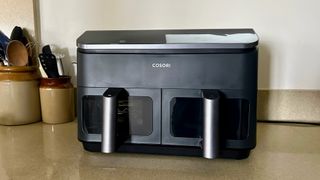Air Fryers
Latest about Air Fryers
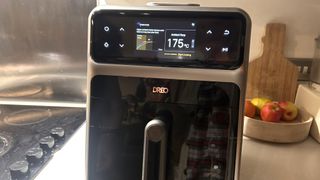
Dreo ChefMaker Combi Fryer review: for Michelin-starred chef-approved meals
By Terri Williams last updated
Review Air frying is just the tip of the iceberg with this award-winning multi-functional cooker.

Midea MAD53109APK 5.5QT Air Fryer review
By Alexandra Frost published
Review The Midea 5.5 QT Air Fryer is a compact, straightforward appliance that delivers excellent results, making it a practical choice for everyday cooking.

Midea MAD111D8APKW 8-In-1 Two-Zone Air Fryer Oven review
By Alexandra Frost published
Review If your air fryer isn’t big enough to house multiple dishes you want to make at once, you might need the Midea Dual Zone Air Fryer.
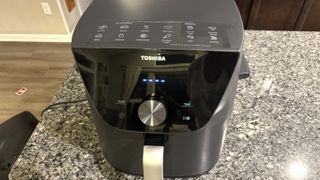
Toshiba AF-74CSROUS 7.7-Quart Air Fryer review
By Alexandra Frost published
Review The Toshiba 7.7 QT Air Fryer has a large capacity, making for easier meal prep and fewer dishes, and is quite intuitive to set up and use.
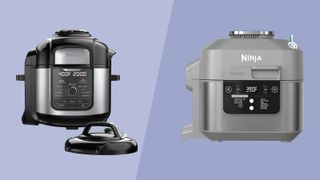
Ninja Foodi vs. Speedi: which multi-function air fryer reigns supreme?
By Victoria Woollaston last updated
Versus We compare the Ninja Foodi range and the Deluxe XL with the Ninja Speedi rapid cooker and air fryer.

Black Friday air fryer deals 2025: snag one of next year's tastiest reductions
By Caroline Preece last updated
Black Friday Don't miss out on these incredible savings—prepare to grab the best deals during next year's sale!

Air fryer vs microwave: which appliance do you need in your kitchen?
By Maddy Biddulph published
Versus Both appliances offer a fuss-free and fast cooking style, but which is better for you?
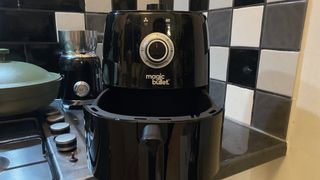
Best small air fryers for one person 2024: our top compact air fryers, tested by experts
By Jennifer Oksien last updated
Buying Guide We've tried the best small air fryers for one person from the likes of Cosori, Magic Bullet, and Cuisinart.
Sign up to receive the latest news, reviews, buying guides and deals direct to your inbox
